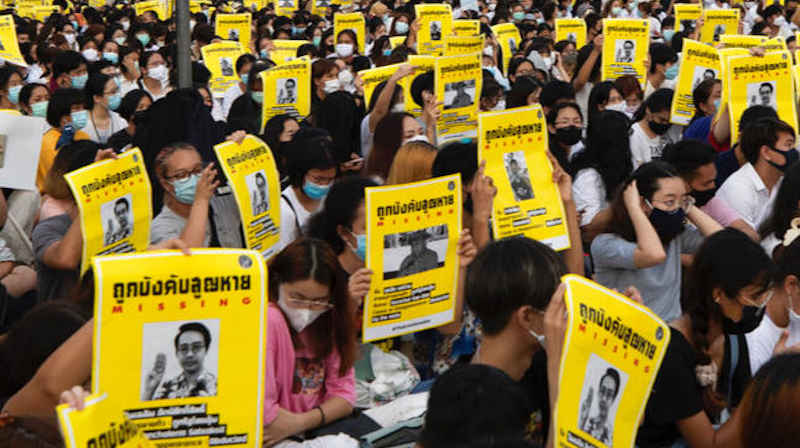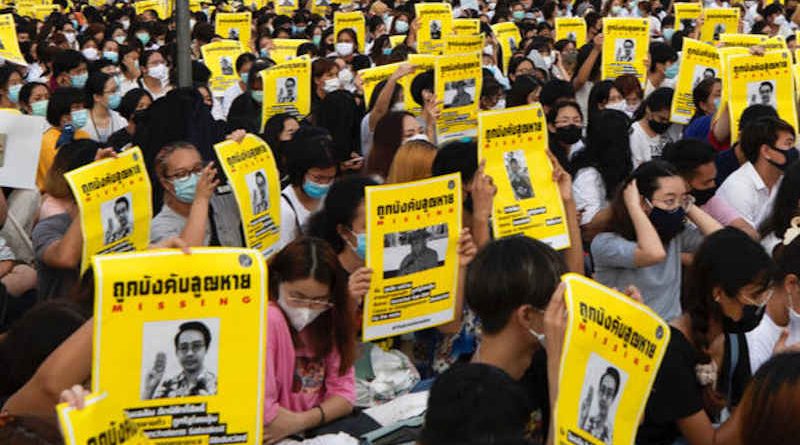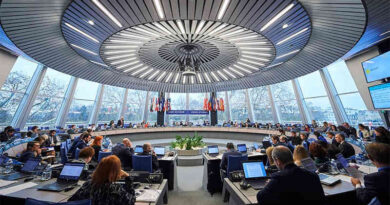Thai Protesters Demand Repeal of Law Against Questioning the Monarchy

The offence carries sentences of between three and 15 years’ imprisonment for defaming, insulting, or threatening the country’s royal family.
By Rakesh Raman
In the ongoing protests against Thailand’s authoritarian regime, protesters are demanding the repeal of a draconian law that punishes those who question the country’s monarchy.
At least 35 activists are currently facing charges under the lèse majesté law, which prohibits criticism of Thailand’s royal family. It is the first time in over two years that the law has been used against the citizens who have been protesting against the military-backed government for the past 5 months.
As the Thai government has gone restless over the continuing protests in the Southeast Asian nation, the demonstrators are facing the lèse majesté accusations, as they have challenged King Maha Vajiralongkorn’s increasing interference in the political affairs.
The office of the UN High Commissioner for Human Rights said in a statement that it is deeply troubled by the move of Thai authorities to charge at least 35 protesters in recent weeks, including a 16-year old student protester, under Article 112 – the lèse majesté provision of Thailand’s criminal code.
The offence carries sentences of between three and 15 years’ imprisonment for defaming, insulting, or threatening the country’s royal family.
The UN Human Rights office has urged the Government of Thailand to stop the repeated use of such serious criminal charges against individuals for exercising their rights to freedom of expression and peaceful assembly while people should be able to exercise these rights without fear of reprisals.
The UN Human Rights office has asked the Thai Government to amend the lèse majesté law and bring it into line with Article 19 of the United Nations International Covenant of Civil and Political Rights (ICCPR) on the right to freedom of expression.
DOWN WITH DICTATORSHIP, LONG LIVE DEMOCRACY
Thousands of Thai protesters continue to defy a government diktat that bans demonstrations against the despotic regime. Although the government has banned assembly of five or more people and the publication of news and online information that could threaten national security, the protesters pledge that they will hold daily demonstrations against the callous Thai government.
Protesters are holding anti-government rallies in the Thai capital, Bangkok, to demand an end to dictatorship in Thailand. The peaceful protesters, who are being threatened by government-backed police and security forces, openly challenge the monarchy of Thai King Vajiralongkorn and demand reforms to curb his powers.
In a series of protests – mostly led by students – the demonstrations have been asking the government to dissolve the parliament and draft a new constitution in which the country’s monarchy has limited role in politics. They also demand that the monarchy should be brought under the constitution.
Although it is a serious crime under Thai law to challenge the royal family, the protesters – who are also holding protests in other parts of the world – demand reformation of the monarchy, which should be prohibited from expressing political opinions in public.
It is said that the protest in August at Bangkok’s Democracy Monument was one of the biggest anti-government demonstrations since Prime Minister (PM) Prayuth Chan-ocha took power in a 2014 coup.
The protesters waved banners and chanted: “Down with dictatorship, long live democracy” slogans. They are demanding that Prayuth – a former general who won disputed elections a year ago – stand down.
Since the coup on May 22, 2014, Thai people have been forced to live under the control of junta government (military dictatorship), which has been exercising extreme and incontestable state power to silence and control the citizens. “We refuse to tolerate the cruelty and incompetence of the rulers any longer,” asserts a Thai freedom group.
With a list of demands, the group warns that if the government did not accept its demands, it will intensify its protests, which are expected to receive wider support from the citizens despite the government’s coercive actions against the dissenters.
While PM Prayuth says the majority of Thais do not support the protests, a few supporters of the monarchy have also staged simultaneous rallies.
By Rakesh Raman, who is a national award-winning journalist and social activist. He is the founder of a humanitarian organization RMN Foundation which is working in diverse areas to help the disadvantaged and distressed people in the society.






